Social media has become the norm and expected platform for photographers to showcase their work and build a following/brand.
But are you using the right platforms and how can you increase your reach to make sure you’re not wasting your valuable time? We’ve got you covered with fantastic social media tips for photographers.
Watch a recording of a Social Media Tips for Photographers live stream Q&A featuring photographers Nick Hunt and Stephen Walton where we talk through some of the hot questions sent into use by iPhotography PLUS members.
There are a number of benefits to using social media for photography. This isn’t to say that you can’t grow a photography business without using social media, but you’ll certainly be going against the grain and making it easier for your competitors to connect with your market instead. Here are 3 common reasons why you might want to use social media as a photographer
1. Ultimately most photographers, who are starting a business at least, use social media to increase their audience size and spread awareness of your brand. But make sure that audience is packed with potential customers and not just people who like the look of your work but aren’t the kind of people who are actually going to pay for your services.
2. Social media is a way to market your business and track down your ideal clients. This could be connecting with other businesses to offer them brand photography or other services related to their operations. Where years ago photographers almost went door-to-door to find clients and tell them about their business this is the digital age of networking.
3. But you may just be a photographer with no agenda of growing a business or trying to make money from social media. In that sense, social media simply becomes a way of showing off your work to new people and maybe getting feedback and tips on how to improve.
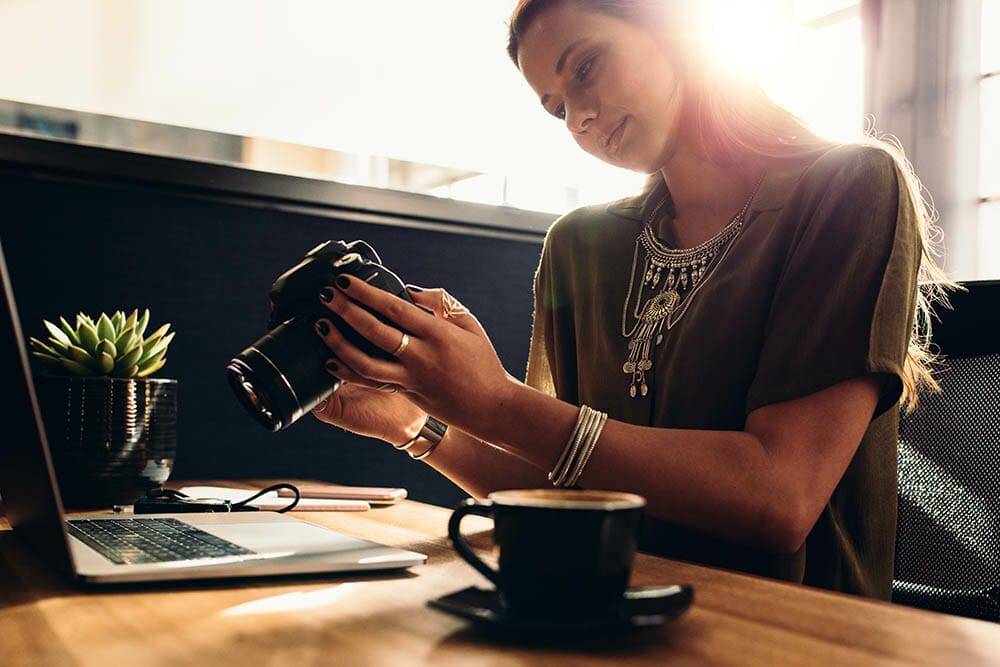
There are so many social media platforms for photographer to consider using but which is the best? This is what we think some of the pros and cons are for each of the most common sites.
| Site | Pros | Cons |
|---|---|---|
| Easy to use and designed for images | Adverts and reels starting to take priorities, timeline not natively chronological anymore | |
| Most popular platform | Facebook image compression kills quality | |
| Displays vertical and horizontal images without cropping | Works best with relevant captions or descriptive text, not just post-and-go | |
| TikTok | Rising in popularity | Designed for video, not stills |
| YouTube | Second biggest search engine in the world | Best for video, if you’re not interested in filming your adventures, don’t bother |
| Useful for sharing blogs and getting inspiration | Harder to build an audience and engage with them | |
| Vero | Algorithm free and designed for photographer | Very new in the world of social media and only photographers are using it |
Don’t forget to consider other, smaller platforms such as Behance, Flickr and YouPic. And check out iPhotography’s social media world here too!
That decision is ultimately down to you, but the best yard stick to measure your answer by is – do you have the time to keep all your platforms current and treat them appropriately? If so, go for it.
Otherwise aim to use 1-2 platforms that you feel best fit your audience or ones that you enjoy using and are familiar with. Don’t go posting the exact same image and text across all platforms. Customise your captions and photo crops to suit the apps and audience. This can take more time in preparation so consider how much time you’ve got to give, now and in the future.
It’s better to have one amazing Instagram feed rather than average Instagram, Facebook and Twitter feeds. Just because they’re popular doesn’t mean you need to be posting your photos on all the platforms.
Some photographers post different types of content to different platforms. For me personally, I use Instagram the most. That’s where all my new images get posted, I don’t post them anywhere else. I do use YouTube sometimes for time-lapses of my Photoshop composites. I tend to stay away from Twitter and Facebook.
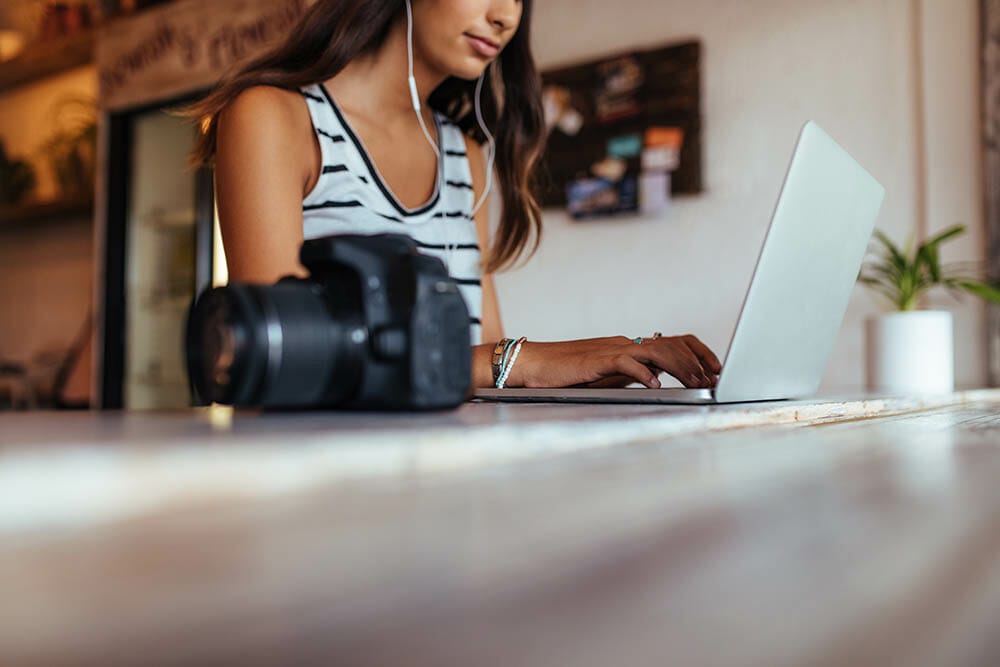
Here are a big stack of wonderful social media tips for photographers that’ll keep your audience engaged and coming back for more.
● Decide on whether you’re using social media for fun or potential business firstly. Let that be reflected in your plan. It’s good to have a blog/website to point your audiences too, but not essential.
● Plan what type of photos you want to post – are you trying to promote yourself as a ‘type’ of photographer i.e. landscapes, street etc, or just a general snapper? Either way, be consistent and make every upload count – don’t post just for the sake of it. Make sure you’ve got something to say about your shots.
● Educate follower you followers with your posts. Share the experiences you had while shooting the images you post by writing about things that happened to you. Maybe share what camera settings you used – even though we all know that’s a fairly redundant thing to do, but some people like to know the camera model and lens.
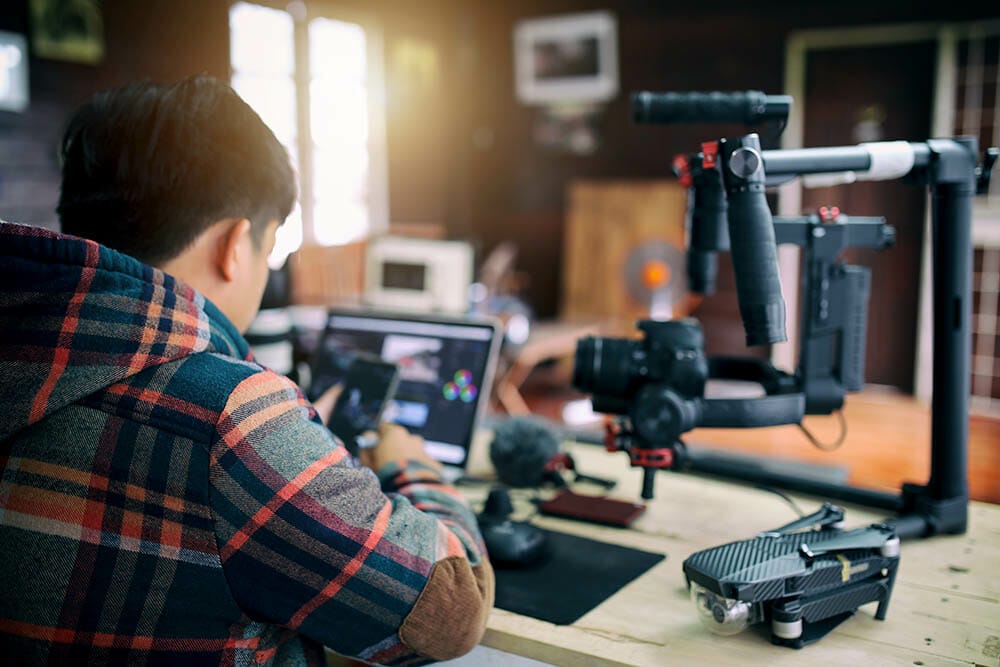
● How about sharing a before and after from original to edit?
● Be honest with what you say. Don’t try to conform and if that means being controversial then that’s fine. Obviously don’t set out to upset and offend if you really want to look professional and bring in clients.
● Format images to suit the platform you are posting too. 1:1 (square crops are good as well as 4:5 verticals for phones. Horizontal crops don’t look as good. You may find yourself shooting vertical photos more often to suit social media.
● After a while look at your insights and see when your audience is online to post at the best time. Don’t post to multiple platforms at the same time. Look at when your audiences are online, this may differ to each platform.
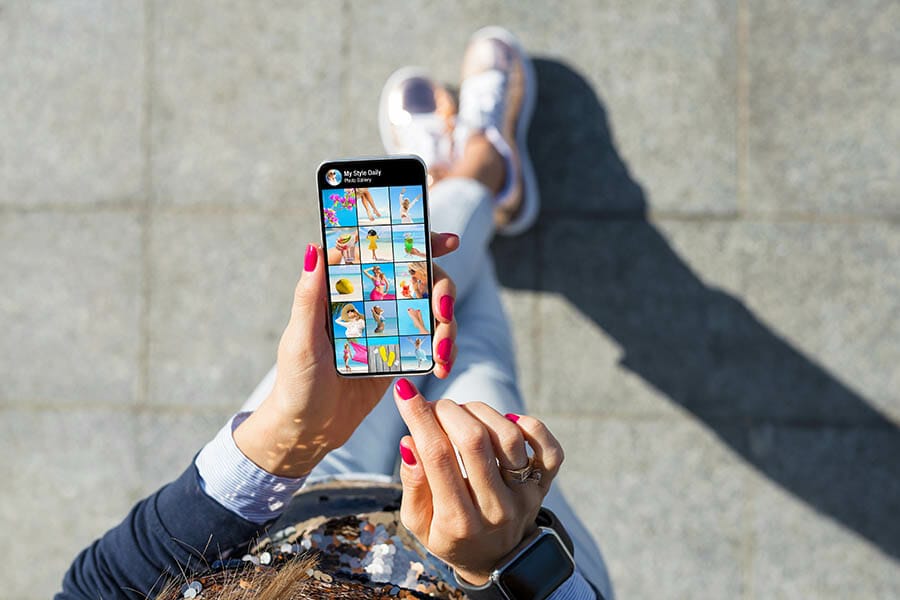
● Don’t spam your posts with hashtags. Add in unique hashtags as well as ones very specific to your image. Instagram allows up to 30 tags per post. They can look messy and desperate on Twitter and Facebook posts.
● Social media loves video nowadays. Consider filming a little behind the scenes video about what you’re up to in between your photography to make your audiences feel part of your work. Keep these videos for your Facebook/Instagram stories or TikTok.
● Tag in businesses/products when you’ve visited their places or used their products in shots. Consider ‘boosting’ strong posts and turn them into adverts if this is for business so it reaches more people.
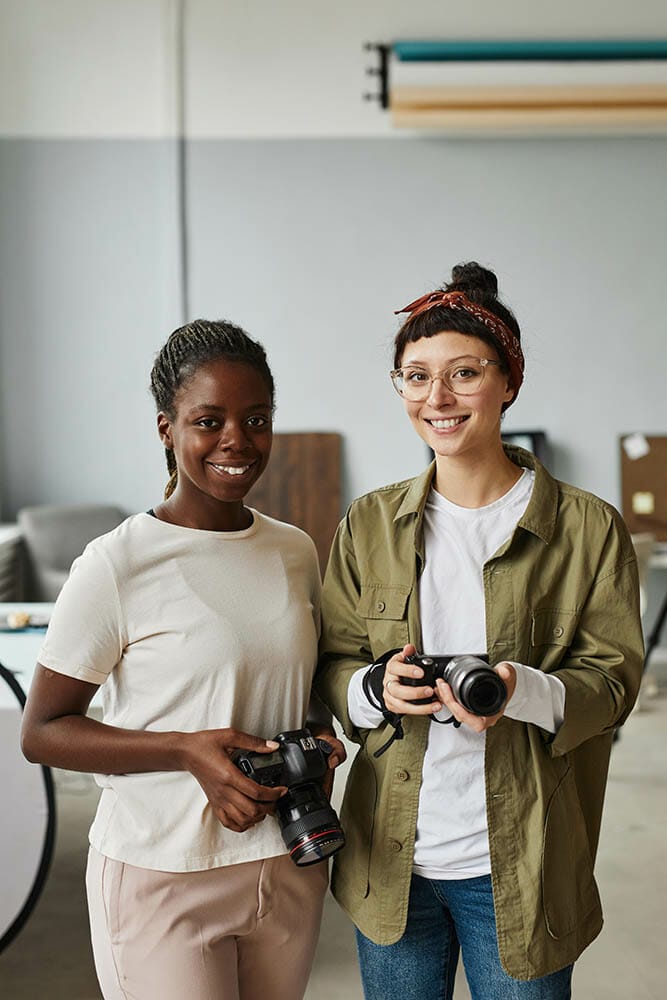
Remember to thank users who drop comments on your shots and respond to as many messages as possible.
When it’s suitable, consider doing a giveaway on a printed photo as a thank you when you’ve grown a following. Make sure it doesn’t cost you too much in the early days, and as you grow you could giveaway bigger prizes. Everyone loves a competition.
Social Media can be very time consuming like this so remember to keep in mind when its for fun or for business. Think about following like-minded individuals and build up a follower list of content that inspires, motivates and interests you. Don’t follow accounts to get more follow backs.
If you are victim to the odd negative comment don’t take it to heart. Feel sorry for ‘trolls’ that they have time to waste on being like that. Delete negative comments for your own peace of mind and wellbeing.
While building a following can take time (it won’t happen overnight, it can take years) don’t solely gauge your success on your follower size either. The goal (as a photographer) is to take better, unique and more interesting images, not to have 10,000 followers. That doesn’t mean your photography is better, it just means your social media game is.
Make sure it’s enjoyable – when it’s becoming a drag, step away, do something else and then return when you’re ready. Mental health is more important at the end of the day.

The world of social media is constantly changing and you’ll have to stay on top of the trends to keep pace with your competitors. But don’t let it burn you out. It’s fine to be human and take a break sometimes.
Interacting with your audience, posting images and stories with engaging questions brings people into your community building an audience. Be open, be honest and be friendly.
Bookmark and save this article about social media tips for photographers so you can find it again in the future. If you’ve got any other questions about photography chances are you’ll find the answers in our other articles and tutorials below.
Popular memory cards for photography – what’s the best SD card for your digital camera? Choose the right capacity and class speed in our guide
Discover the BEST way on how to clean a camera sensor using swaps, rocket blowers and pencil brushes to give your shots a dust-free finish!
Capture the magic of the night with our beginner’s guide to night photography. Learn tips and techniques for stunning results.
Learn the basics of photography – fast – with our FREE 60-Second Photographer online course. Each class is short and sharp with simple, actionable steps that give you immediate results.
x 30 lessons
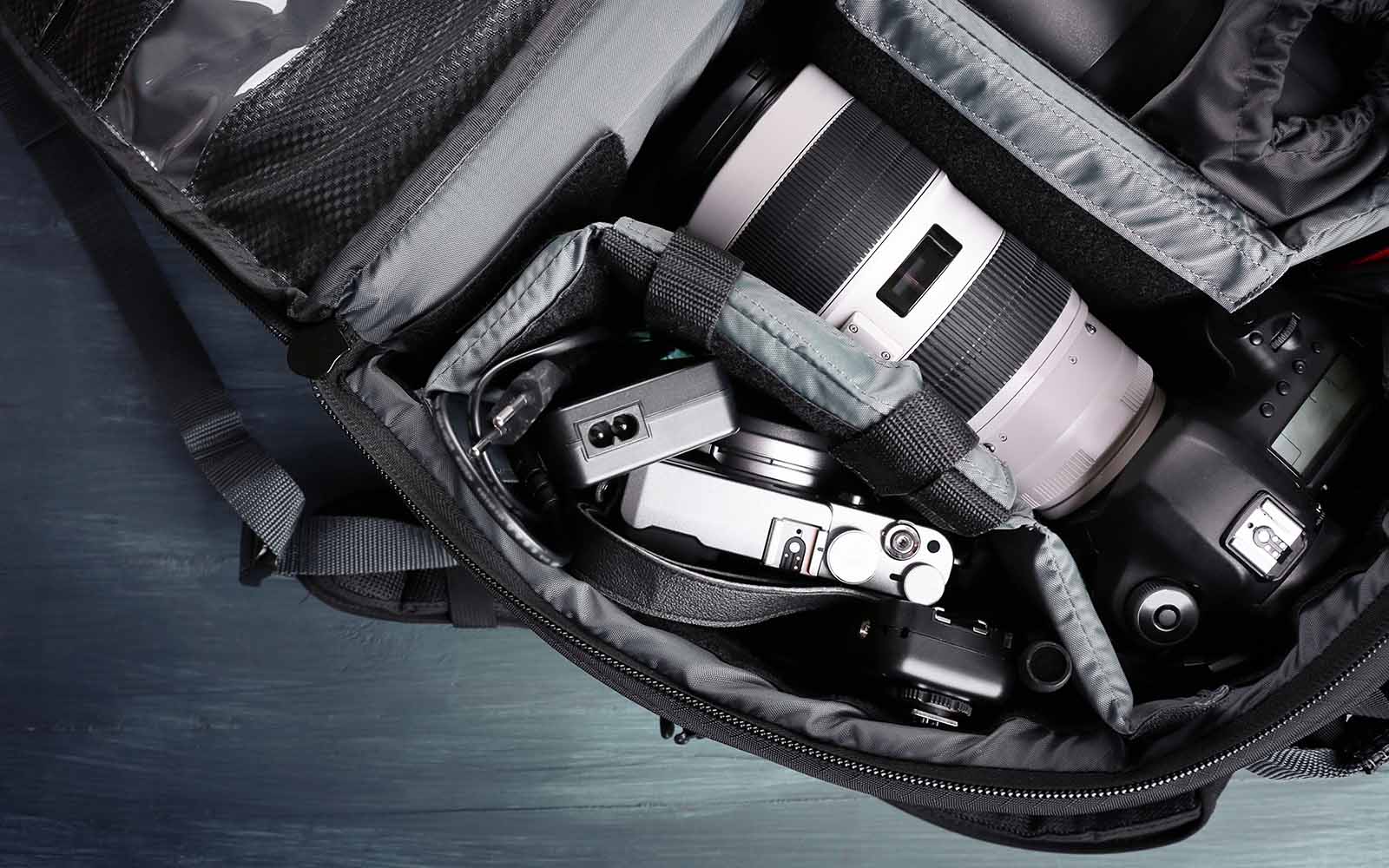
© iPhotography™
Become a confident and competent photographer in less than 30 minutes!
Before you leave, make sure you’ve secured your FREE online photography course (worth £29.99)
Each class is just 60-seconds or less making it the fastest and easiest way to learn photography!